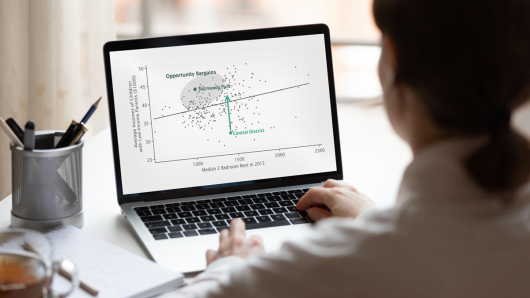Big Data for Social Good - June 2024

- Introductory
Associated Schools



Examine historical income, education and family support, and geography to understand how these economic factors lead to upward mobility
Understand how big data is used to identify the causes of socioeconomic disparities and how data can lead to evidence-based action and outcomes
Explore economic methodologies, such as statistical models, regression analysis, and quasi-experiments in data set combinations
Utilize economic frameworks and apply them to your work
Use evidence to engage and gain support of communities and constituents to drive systemic policy developments and changes
The American Dream—the idea that through hard work any child can rise up and achieve a higher standard of living than their parents—is fading: only half of kids today will go on to earn more than their parents did. Why has this happened? And, how can we reverse the fading of the American Dream?
“Big data” is often associated with corporations seeking to improve products by collecting data on customers; but, what if we could use big data for social good—to address problems such as the fading American Dream, growing income inequality, or persistent racial disparities?
Big Data for Social Good will teach you how to use big data, coupled with the tools of data science and economics, to solve some of the most important social problems of our time. Big data can help us cut through politically charged debates and find out what policies actually work from a scientific perspective, making the often-discussed notion of “evidence-based policymaking” a reality. Using big data, we can see how the specific neighborhoods in which we grow up and the schools we attend shape our life outcomes—and how we can take these insights to create better opportunities for all.
Taught by Harvard professor and MacArthur “Genius Grant” winner Raj Chetty, this course will show you when and how big data can be used to address questions on a micro and macro level. You will learn how to apply key tools of data science such as descriptive data analysis, causal inference, and regression methods to these questions. You will hear from educators, social activists, and policy experts about how they approach pressing issues such as economic and racial disparities. By the end of the course, you will understand how to break down complex social problems, create and rigorously test scientific hypotheses about their drivers, and develop concrete plans of action to address them.
Big social problems require big data solutions.